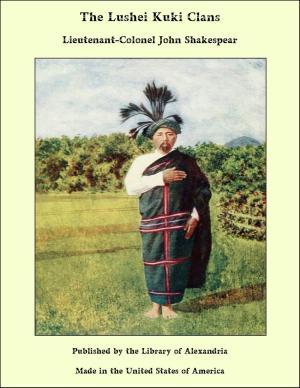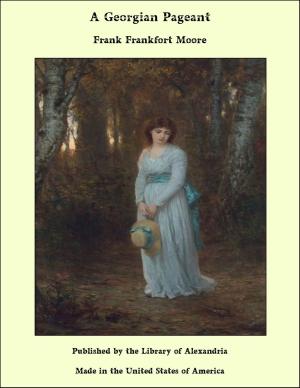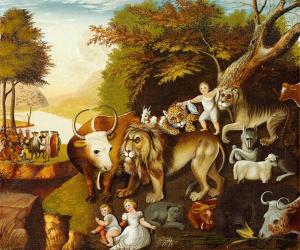| Author: | Archer Butler Hulbert | ISBN: | 9781465575746 |
| Publisher: | Library of Alexandria | Publication: | March 8, 2015 |
| Imprint: | Language: | English |
| Author: | Archer Butler Hulbert |
| ISBN: | 9781465575746 |
| Publisher: | Library of Alexandria |
| Publication: | March 8, 2015 |
| Imprint: | |
| Language: | English |
A thousand vague rumors came over the Allegheny mountains during the year 1753 to Governor Dinwiddie of Virginia, of French aggressions into the Ohio River valley, the more alarming because vague and uncertain. Orders were soon at hand from London authorizing the Virginian Governor to erect a fort on the Ohio which would hold that river for England and tend to conciliate the Indians to English rule. But the Governor was too much in the dark as to the operations of the French to warrant any decisive step, and he immediately cast about him for an envoy whom he could trust to find out what was really happening in the valley of the Ohio. Who was to be this envoy? The mission called for a person of unusual capacity; a diplomat, a soldier and a frontiersman. Five hundred miles were to be threaded on Indian trails in the dead of winter. This was woodman’s work. There were cunning Indian chieftains and French officers, trained to intrigue, to be met, influenced, conciliated. This, truly, demanded a diplomat. There were forts to be marked and mapped, highways of approach to be considered and compared, vantage sites on river and mountain to be noted and valued. This was work for a soldier and a strategist. After failing to induce one or two gentlemen to undertake this perilous but intrinsically important task, the services of a youthful Major George Washington, one of the four adjutant-generals of Virginia, were offered, and the despairing Scotch Governor, whose zeal always approached rashness, accepted them. But there was something more to the credit of this audacious youth than his temerity. The best of Virginian blood ran in his veins, and he had shown already a taste for adventurous service quite in line with such a hazardous business. Acquiring, when a mere lad, a knowledge of mathematics, he had gone surveying in Lord Fairfax’s lands on the south branch of the Potomac. There he spent the best of three years, far beyond the settled limits of Virginia, fortifying his splendid physique against days of stress to come. In other ways this life on his country’s frontier was of advantage. Here he had met the Indians—that race upon which no man ever wielded a greater influence than Washington. Here he learned to know frontier life, its charms, its deprivations, its fears and its toils—a life for which he was ever to entertain so much sympathy and so much consideration. Here he studied the Indian traders, a class of men of much more importance, in peace or war, than any or all others in the border land; men whose motives of action were as hard to read as an Indian’s, and whose flagrant and oft practiced deceptions on their fellow white men were fraught with disaster.
A thousand vague rumors came over the Allegheny mountains during the year 1753 to Governor Dinwiddie of Virginia, of French aggressions into the Ohio River valley, the more alarming because vague and uncertain. Orders were soon at hand from London authorizing the Virginian Governor to erect a fort on the Ohio which would hold that river for England and tend to conciliate the Indians to English rule. But the Governor was too much in the dark as to the operations of the French to warrant any decisive step, and he immediately cast about him for an envoy whom he could trust to find out what was really happening in the valley of the Ohio. Who was to be this envoy? The mission called for a person of unusual capacity; a diplomat, a soldier and a frontiersman. Five hundred miles were to be threaded on Indian trails in the dead of winter. This was woodman’s work. There were cunning Indian chieftains and French officers, trained to intrigue, to be met, influenced, conciliated. This, truly, demanded a diplomat. There were forts to be marked and mapped, highways of approach to be considered and compared, vantage sites on river and mountain to be noted and valued. This was work for a soldier and a strategist. After failing to induce one or two gentlemen to undertake this perilous but intrinsically important task, the services of a youthful Major George Washington, one of the four adjutant-generals of Virginia, were offered, and the despairing Scotch Governor, whose zeal always approached rashness, accepted them. But there was something more to the credit of this audacious youth than his temerity. The best of Virginian blood ran in his veins, and he had shown already a taste for adventurous service quite in line with such a hazardous business. Acquiring, when a mere lad, a knowledge of mathematics, he had gone surveying in Lord Fairfax’s lands on the south branch of the Potomac. There he spent the best of three years, far beyond the settled limits of Virginia, fortifying his splendid physique against days of stress to come. In other ways this life on his country’s frontier was of advantage. Here he had met the Indians—that race upon which no man ever wielded a greater influence than Washington. Here he learned to know frontier life, its charms, its deprivations, its fears and its toils—a life for which he was ever to entertain so much sympathy and so much consideration. Here he studied the Indian traders, a class of men of much more importance, in peace or war, than any or all others in the border land; men whose motives of action were as hard to read as an Indian’s, and whose flagrant and oft practiced deceptions on their fellow white men were fraught with disaster.















